#signal and noise
Explore tagged Tumblr posts
Text
🕳️ “Jenna’s Fracture” — from Beyond the Edge of Light by somethingismissing drawn from the short story Antenna →
“Can you hear the echoes call? In the void, we lose it all.”
This track emerged from Antenna, a short story about signal loss, perception, and the fragile link between mind and world. But revisiting the lyrics now, it’s impossible not to hear the deeper resonance with auditory processing disorder — that strange, liminal space where sound arrives, but meaning doesn’t.
The song drifts through static, glitch, repetition, and disconnection — not as stylistic affectations, but as reflections of what it feels like when you’re caught between hearing and understanding, between noise and signal. It’s a kind of perceptual limbo. Voices blur, memory slips, and comprehension frays.
The repetition of:
“A tethered mind to distant cries, Breaking through where silence lies.” ...reads like a neuro-poetic depiction of APD: the tether to meaning pulled thin by invisible interference.
The artist name, somethingismissing, was born from the original concept behind Narrata.io — ERR_404. It’s a digital metaphor, yes, but also a sensory one: the search for meaning in a world of dropped packets and faded messages, where what’s “heard” isn’t always what’s received.
If you live with APD — or any kind of sensory processing difference — this one might speak directly to you. Or echo quietly in the spaces between.
—
Full lyrics:
Drifting through the static hum, Memories that come undone. Signals lost in shifting light, Fragments dance in endless night.
Can you hear the echoes call? In the void, we lose it all. A tethered mind to distant cries, Breaking through where silence lies.
Can you hear the echoes call? In the void, we lose it all. A tethered mind to distant cries, Breaking through where silence lies.
Fading faces, blurred with time, Glitches twist this fragile mind. Reaching out to touch the past, Slipping forward, falling fast.
The void, it waits, a hollow friend, Calling softly, ’til the end. In the static, voices blend, All we lost, and all we mend.
Can you hear the echoes call? In the void, we lose it all. A tethered mind to distant cries, Breaking through where silence lies.
Can you hear the echoes call? In the void, we lose it all. A tethered mind to distant cries, Breaking through where silence lies.
The static fades into the night, Whispered secrets, lost from sight. In the darkness, drifting free, Gone forever—just memory.
Can you hear the echoes call? In the void, we lose it all. A tethered mind to distant cries, Breaking through where silence lies.
The static fades into the night, Whispered secrets, lost from sight. In the darkness, drifting free, Gone forever—just memory.
The static fades into the night, Whispered secrets, lost from sight. In the darkness, drifting free, Gone forever—just memory.
The static fades into the night.
#auditory processing disorder#neurodivergent#hearing without understanding#liminal spaces#signal and noise#glitch aesthetics#static#disconnection#fragmented memory#lost in translation#suno ai
1 note
·
View note
Text
"(and echoes are seldom more than a bark, no matter how pure-voiced the caller)"
- The Real Life of Sebastian Knight, by Vladimir Nabokov
#quotes#books#reading#literature#philosophy#amreading#book quotes#philosophy quotes#echoes#repetition#reverberation#imitatiom#repurcussions#media#representation#misrepresentation#fidelity#signal#signal and noise#Nabokov#the real life of sebastian knight#vladimir nabokov
0 notes
Text
AI fiction proponents are like “if infinite monkeys on infinite typewriters could make Shakespeare, then they could make something better than Shakespeare. Think about that.”
1 note
·
View note
Text
The Limits of Statistical Thinking - Limitations of Abstraction
"Farmers aim to implement a breeding strategy that maximizes profits. In poultry, this amounts to maximizing hens’ lifetime egg production. One sensible approach might be to select the most productive individual chickens to reproduce. The reality, however, is not so simple."

"The causal pathways that affect individual hens’ egg production are complicated because each hen’s productivity is influenced by the behavior of other hens in their social environment. It turns out that the most productive hens in a coop are also the nastiest hens, feather-pecking and cannibalizing the other hens in their coop. Because individual hens who are most productive are those that harm others, selectively breeding the most productive hens can actually lead to lower overall egg production (Muir, 2005; Wade et al., 2010)."
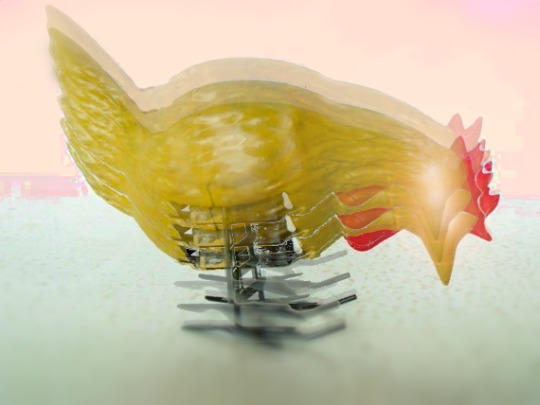
"From an economic perspective, feather-pecking and cannibalism are problems when they cut into profits (El-Lethey et al., 2000). From an animal-welfare perspective, they are tragedies. Yet breeders have developed a strategy to address these problems: Instead of selecting the most productive individuals, breeders can select the most productive groups—that is, all hens in the most productive coops are selected to reproduce. Such a selection regime implicitly accounts for hens’ indirect effects on group members (Wade et al., 2010)."

"In one application of this approach, mortality dropped from 68% to 9% in just a few generations, and laying increased from 91 to 237 eggs (Muir, 1996)." - Shifting the Level of Selection in Science
In AI research, and general AI products, there is a tendency to reduce problems down to the bare minimum - reducing the number of dimensions of problems to make them more manageable and solvable. This is, in many ways, an excellent idea. It reduces the curse of dimensionality, it makes it significantly easier to solve issues and can then reduce the time and effort needed to do tasks. This is a process also done by biological organisms to adapt and change their approaches to life. What, then, can this tale of chickens teach us about the limitations of simplistic statistical thinking? The main issue arises, in what is removed. In the book The Signal and the Noise - Nate Silver outlines how when we make decisions, we look for useful signs (signals) and remove irrelevant information (noise) to make good quality predictions or decisions. For the chickens, sociality is not considered important, so is removed as a measure. This crucial piece of information is not considered economically important as the number of eggs laid - causing a loss of eggs laid in future. Lesson one is that you must do your research thoroughly before defining your useful metrics. There are several not easily quantifiable variables which are often not considered. Sociality, aggressiveness. The social intelligence measures are not considered. Lesson two is that you must find a way to let qualitative measures be used to inform your approach. These can, potentially be quantified in some ways, but must be done very carefully as by quantifying you will create some way of "gaming" the definitions.
Different scale decisions will, of course, demand differing scales of information. For the very short term - individual chicken selection would make some logical sense. Lesson three is that your ultimate goal will define the metrics used. The ultimate goal of the chicken farmer is to get more eggs to sell. If they're focussed on very short-term results, for high gain, individual chicken selection would be acceptable. If, however, they want decades long improvements, then selecting social groups, with high egg laying, is the best approach and social ability becomes a crucial metric of success.
From the chicken's point of view their goals are to feed and reproduce. If the farmer rewards those who are hyper-optimised for both, then the chickens with adaptations to improve their egg laying will succeed - whatever that strategy might be. Frankly the chickens don't give a cluck about giving you eggs.

Any good model, or any good simulation of intelligence, must be able to at least be able to, in some way, consider these limitations if it is able to return good quality decisions or predictions.
Too often, too much of reality is abstracted away, and what is left is a meaningless sludge of "watching the numbers go up" which appears to have been the only possible choice when better alternatives were readily available to those who only looked for them. A reality all to familiar to many living in our current economic system of metrics and KPIs.
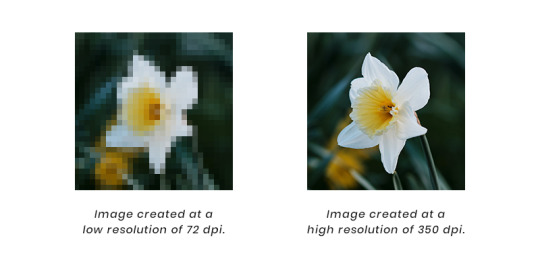
This is the key limit of statistical methods for applied systems. Unless you are able to adapt your metrics over time, to suit your goals and adapt to unexpected outcomes, your model is doomed to become less representative of reality over time.
Numbers can tell a story, but high resolution reality hold the whole picture - warts and all.
Source: Shifting the Level of Selection in Science - Leo Tiokhin, Karthik Panchanathan, Paul E. Smaldino and Daniël Lakens
#teamwork is the dreamwork#team player#science#research#blindly following numbers can lead you up blind alleys#signal and noise
0 notes
Text
Signal > Noise
(Bite-sized topics in media and information literacy)
Here's a great example of how amazingly sloppy professional western media has become.
This New York Magazine article came out four days ago. Check out the caption on this photo.

"Damage from Israel’s strike on Ramat Gan in Iran"
Here's the thing: Israel didn't strike Ramat Gan in Iran.
Ramat Gan is a city of ~170,000 people to the east of Tel Aviv, in Israel.

Misinformation is false or inaccurate information-getting the facts wrong.
Disinformation is false information which is deliberately intended to mislead- intentionally misstating the facts.
If this had just been posted today, I'd assume it's a mistake and call it misinformation.
After four days uncorrected, though, this stops being misinformation and becomes disinformation.
Why? After four days, they unquestionably know it's wrong...and have not bothered to correct it.
What does that tell you about New York Magazine (or parent company Vox Media)? How important are things like journalistic ethics and integrity to them?
#jumblr#israel#Journalism#New York Magazine#Iran#Ramat Gan#Sloppy Journalism#Sloppy Reporting#Misinformation#Media literacy#Information literacy#Signal > Noise#current events#News#disinformation
319 notes
·
View notes
Text

25AF/ZQ 25th Air Force
OL-WP Operating Location Wright Patterson
Special Analysis Branch SIGINT/NSA/Crypto Air Force Patch
609 notes
·
View notes
Text



the mad stone!
let it control you!
#signal to noise#original art#original characters#artists on tumblr#everything everything#this is about dear ms. the unnamed caver but if you wanna read it as general mad stone fanart go ham idc#this song fits her. exceptionally well. but i dont think id ever make an amv for her cause she is such a background character#as much as i absolutely ADORE her. so heres like three hypothetical scenes from that#IM REALLY PROUD OF HOW THESE TURNED OUT....GRAGH !
511 notes
·
View notes
Text
Democrats could've won if both Joe and Kamala had committed ritual suicide in April. They still can.
271 notes
·
View notes
Text
I like to think Hiccup has whole 'conversations' with Toothless that are essentially incomprehensible to anyone but them (they consist of little human language–mostly draconic noises and body language as well as signals/cues specific to Hiccup and Toothless) the other riders are used to it at this point, but a lot of people are very much not and find it incredibly confusing.
Its started a lot of rumors of Hiccup being some 'dragon whisperer' that can actually speak to and command them and the other riders tease him about it relentlessly because he despises the rumors and always tries to correct them. Like every time they're brought up he'll say something along the lines of "No. If u actually pay attention to and connect with them, adapting to their way of communication isn't hard. I don't actually speak with them ur just not observant enough" and is constantly ignored
(This is kind of a follow-up to another post but I didn't want to tack it onto a rb)
#he'll seem like hes talking to himself then make the weirdest fucking none human noise or movement#and they'll realize toothless is like right behind him with his ears perked up very clearly listening and about to respond#this is partially canon but they have a lot of hand signals too#hiccup waves his hands around absently when hes talking and excited (literally stimming)#but also has developed the habit of making specific movements when talking to toothless#httyd#hiccup and toothless#hiccup haddock#httyd headcanon#hiccup horrendous haddock iii#toothless#im supposed to be asleep rn 💀#rtte#how to train your dragon#autistic!hiccup#moth.txt#deyas dragons
831 notes
·
View notes
Text
Ok so the popular consensus is that the bat brood will absolutely terrorise any guests any of them have over but what if we take that concept and tweak it a little bit.
Instead of them doing weird shit openly, how about they act totally normal HOWEVER they do weird little unsettling things that suddenly disappear if you do a double take. The guest leaves really unsettled but with no tangible reason they can name to explain it. Allow me to provide some examples:
Dick: has spent an obscene amount of hours practicing “delayed speech glitch” where his mouth moves, sounding out words before he vocalises them.
Duke: manipulates the lights to shine like a stage light on whoever is speaking at that moment, sometimes douses any family member who has pissed him off in darkness until the guest notices and immediately retracts it when they look back. (This backfires sometimes cause they enjoy pretending to brood in the shadows. Its genetic)
Damian: makes his animals appear in random corners and then disappear just as quickly. (His best feat was when he successfully pulled it off with the batcow and Wally left so fucking confused)
Cass: utilises her body language reading skills to give the guest what they want before they have the chance to ask for it. They spend the entire evening carefully monitoring their thoughts cause they’re 100% convinced she’s a mind reader
#Jason and Tim aren’t included in typical middle child fashion#pull a dcamu and pretend they don’t exist#Jason probably doesn’t show up anyways so#Tim starts making scarily accurate bird noises he almost fools Bruce sometimes#you get extra points if he doesn’t notice u messing with the guest#this is why nobody wants to step foot on Wayne manor#batman#dc comics#batfam#bruce wayne#dcu#batfamily#dc robin#dick grayson#nightwing#cassandra cain#cass cain#dc orphan#batgirl#duke thomas#signal dc#dc signal#shitpost#incorrect batman quotes#incorrect batfamily quotes#Bruce is just So Done
340 notes
·
View notes
Text
vibes are data btw
110 notes
·
View notes
Text
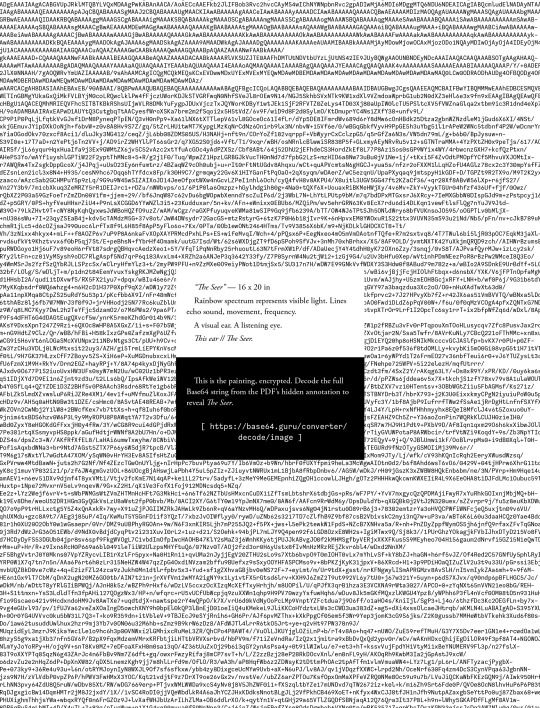
🌀 "The Seer", encrypted.
A work in process for process zine #00 — this spread translates a full-colour painting into raw Base64 code. The wall of characters becomes a veil, a kind of static field — a metaphor for the liminal experience of Auditory Processing Disorder (APD), where the signal is present but inaccessible without the right decoder.
The artwork, The Seer, is hidden in plain sight. Digitised, fragmented, and embedded in the code itself.
When the zine is complete, the full Base64 string will be included as a hidden annotation in the digital PDF. Readers will be able to extract and decode the painting — transforming static back into signal, and signal into sight.
For now, it exists as encrypted presence.
This is the painting, encrypted. Decode the full Base64 string from the PDF’s hidden annotation to reveal The Seer.
#base64#encryption#code to image#signal and noise#decode#APD#auditory processing disorder#liminal experience#visual poetry#data as art#glitch aesthetics#conceptual art#process zine
0 notes
Text
had such a terribly awful day from start to finish yesterday but i am snuggling my sugu plushie and drinking warm milk like a domesticated cat and the sun is shining ……. today will be a little better
#manifesting 👽 manifesting 👽 ….#. alien was the closest i could get to like . antenna signals#idk#my mind is still a mess and i still feel like an unlovable wreck but like#i know itll pass . and thats enough for now#i think i need to unlearn whatever makes me feel so . annoying and awful when i show the slightest hint of venting on dash#bc internalizing that always just makes me feel worse. and my brain tricks me into thinking no one cares or comparing myself to other -#people and the comfort they receive …. that needs to end lmao#like actually#i will not make myself or other people feel miserable just bc im in pms hell . thats not happening#:’) i am trying to be . i dont know. emotionally put together even when ive been crying nonstop since last night pdjdkdj#and i am proud of myself for that despite it all#at the end of the day i have warm milk and my sugu and that is enough#ari noises ✩#cw vent#…… using that tag still makes me feel ashamed but ill work on it lmao#anyway good morning dash . i hope the sun peeks out for you today; or that the moonlight is kissing your skin very softly
62 notes
·
View notes
Text





9.16.24 / 9.17.24 - september supermoon
#last img is a composite btw. wanted moon clarity AND noise blowout; had to get clever to have both#‘she’s was so big and bright last night!’ - my mom#did you know the moon completes its orbit around earth in 27.3 days? it also completes a spin along it’s axis every 27.3 days#so we always see the same side of moon locally; but it depends on where you’re at on earth#the lunar cycle completes every 29.5 days - as opposed to the 27.3 it takes to complete its own orbit;#that’s a difference of 2.2 days!#something something pythagorean comma#like the leap year! a sidereal year is 365.25 days; every four cycles we gain a ‘semitone’ - an extra day#in musical scale: if you complete a circle of fifths using just intervals of perfect fifths; you’ll gain a quarter of a semitone#the interval leading from an old octave into a new one. like a step forward; a comma which denotes transition#so not a ‘circle’ but a spiral/fractal#in western music we flatten each fifth by a 12th of a pythagorean comma to give us our seven ‘perfect octaves’#also called ‘equal temperament’#this flattens each fifth by ~2 cents to eliminate the perceived discordance cause by the slight bump in tone#I’m not saying there’s a metaphysical connection between the chromatic scale and lunar activity#but#it’s neat when you notice that our moon (and other celestial neighbors) move with a sense of musicality#even if that is a modal sense of musicality and not a tonal sense#raw planet sounds be like: BWAAAAAAAEEERRREEEEGGGGGGGGGGGGGGHHHHHHHHHHHH. or at least the signals they blast out into space sound like that#my art#aesthetic#art#artwork#webcore#internetcore#glitchcore#abstract#artists on tumblr#photography#moon
136 notes
·
View notes
Text
Signal to Noise
So it's been a very long time since I've done something like this. I'm bound to make some mistakes somewhere along the way, so I hope y'all will be patient with me. What am I talking about, you ask? I'm going to post a brand new, multi-chapter fanfic. It will be CW Supergirl in genre, Supercorp in pairing, and AU in nature. There are twenty chapters and an epilogue, each of which I will post at least once a week on A03, but there may be some variance in posting days due to real life things. The story is complete and edited, though I am working on the formatting since posting to AO3 is a new thing for me. (I still remember LiveJournal and Geocities, y'all. Yes, I am fandom old.)
The content of the story is what I would consider "explicit-lite" as there will be lady lovin' to enjoy, but the story isn't just sex. I've tried to put what I feel are the most relevant tags on the fic, but please, if there needs to be other tags, let me know. I'm kind of new to the whole tag game.
Without further ado, I present to you "Signal to Noise" a story straight from my wild imaginings.
https://archiveofourown.org/works/62826493/chapters/160856881
#fanfic#supercorp#kara x lena#supergirl fanfic#lena luthor#kara danvers#Shay's Writing#Signal to Noise#sHaYcH#femslash#lesbian
45 notes
·
View notes
Text
Signal > Noise
Gentle, short introductions to media literacy and information literacy
(I keep kvetching about the absence of media literacy and information literacy...and kvetching is useless.
Signal > Noise will be the tag I use for short, digestible intros to concepts in both media literacy and information literacy.
Asks are open if there are specific topics you want covered.)
------
2025-06-18
[Topic: Bias vs Lying]
Our discourse has gotten so ridiculous that we've mostly lost the ability to disagree constructively, think critically, or benefit from the work of smart people with whom we disagree.
We're so fractured and polarized that we routinely say stupid things like:
That source is biased, so it's not valid and nothing it says is true.
If everything is dismissed as bias, and bias is treated as dishonesty, then truth has nowhere to live - leaving us well and truly fucked.
Confusing bias with lying makes us cynical instead of smart. It turns healthy skepticism into hopeless nihilism
"All media is corrupt" isn't enlightenment - it's intellectual surrender and cowardice.
Bias ≠ Lying
A perspective does not prevent a piece of information from being true or useful.
What Bias Is
Bias is all but inevitable and unavoidable, even for those operating at the highest levels of journalistic integrity and discipline. It's baked into how we work.
Below are two paintings of Daniel in the Lion's Den. Same subject, radically different paintings. Is one of them more true? Is one of them less biased?


Maybe photography provides a better analogy. The angle, lighting, composition, saturation, brightness, contrast, and cropping all affect the final image. But the photo is still of a real object, isn't it? Is one of these six photos of the same man in the same room more valid than the other 5?


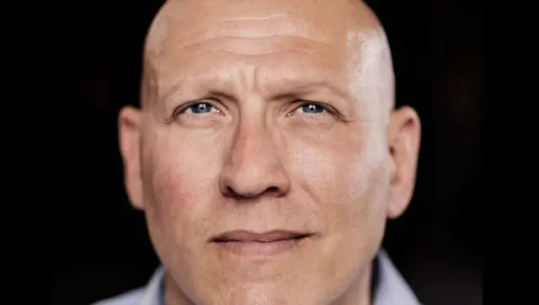



That's how all media works.
All media selects, frames, and focuses utilizing both conscious and unconscious biases.
That's not inherently deceptive - it's how all storytelling functions. Our brains are wired for narrative, it's how our minds work.
Bias can emerge from:
Cultural worldview (like Western vs. Eastern framing)
Political orientation (like left vs. right vs. authoritarian)
Institutional interest (like corporate vs. activist vs. governmental)
Professional constraints (like time limits, editorial priorities, sensationalism for clicks)
A liberal news outlet might cover climate change in terms of justice and inequality. A conservative outlet might instead focus on economic cost and individual freedoms.
Both might be factually accurate. Both are biased. Both have value.
More examples:
A conservative media outlet may emphasize crime statistics.
A progressive media outlet may focus on police accountability.
A US media outlet might frame a Middle Eastern conflict through geopolitics
A local media outlet might highlight the conflict through individual suffering.
All may very well be reporting true facts, but they frame those facts differently.

If you see journalism without bias, let me know - because that's what I'll read when I need to be put to sleep without learning a single thing.
Lying is a completely different animal.
What a Lie Is
Lying goes well beyond having a perspective. Lying is a choice to mislead - an intentional, deliberate falsehood.
Humans can lie with all media: words, pictures, headlines, graphs, statistics...even silence can deceive.
The key ingredient is always intent. Lies are designed to obscure the truth.
Types of Lies in Media:
Outright falsehoods: "Vaccines contain microchips."
Deceptive omissions: Leaving out exculpatory evidence to frame someone unfairly.
Fake sources or data: Citing studies that don’t exist, or misrepresenting real ones.
Image manipulation: Using photos or videos out of context, or editing them deceptively.
A biased report might emphasize some facts over others, but a deceptive one tries to convince you of something the producer of that media knows to be false.
Framing = Bias ≠ Lying
Framing is one of the most common and most misunderstood forms of media bias.
It's not lying - It's the rhetorical and narrative choices that shape how every story is told.
Examples of framing in headlines:
"Unarmed man shot by police" vs. "Suspect neutralized in police operation"
"Protesters clash with police" vs. "Police attack peaceful demonstrators"
"Israel retaliates after attack" vs. "Israeli airstrikes kill civilians"
The facts might not be in dispute. Someone was shot, a protest occurred, airstrikes happened, etc - but how those facts are framed shapes how we interpret them.
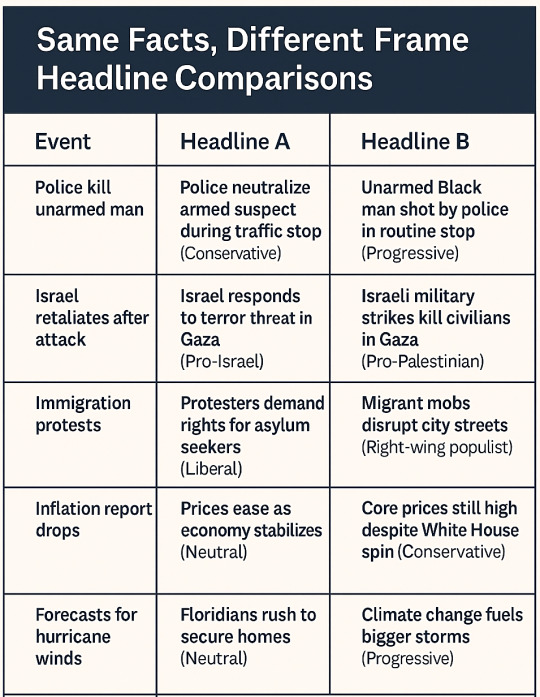
Framing isn't necessarily dishonest. It reflects the values and assumptions of the writer or publication. Understanding framing is essential for media literacy. When you learn to spot frames, you can wring an additional layer of information from the story.
Since it's Unavoidable, Make Bias Work for You
Expecting media to be perfectly neutral is like expecting food to be completely flavorless. It's neither realistic nor desirable. Without a perspective and a framing, a story ceases to be storytelling and our brains...mostly stop processing it.
Every outlet has an editorial mission, an audience, a funding model, a history - so bias is always baked in. That doesn't mean you discard the source. It means you read it strategically, looking for and identifying those biases.
Instead of asking, "Is this source biased?" know in advance that it definitely is.
Instead of asking yourself "should I read this news outlet and regard everything it presents as objective truth"...know that it definitely doesn't, you definitely shouldn't.
Instead, ask yourself questions like:
What kinds of stories does this outlet consistently choose to tell?
Who does the outlet consider trustworthy or quotable?
What kind of loaded language does this outlet use for different groups or events?
Who funds this outlet? Who is its audience? What agenda are they likely to have based on that funding model and target audience?
Bias isn't a disqualifier. It's a clue which tells you more about what you're reading.
Use Biased Sources Without Getting Played
You don't need to trust a source completely to learn something from it. In fact, the most valuable sources are often obviously biased.
1. Identify the Bias
Before even reading, know what kind of outlet you're dealing with. Look at its about page, ownership, funding/revenue model, recurring columnists, and core audience. Does it lean left? Right? Is it globalist? Nationalist? Religious? Secular?
Knowing this lets you anticipate the angle and spot distortions more easily. The more you do it, the easier it gets. After a little practice, you'll see clearly (for example) the huge right wing bias of the Jerusalem Post, the huge left wing bias of Ha'aretz, and how The Times of Israel is mostly pretty disciplined (in their news gathering and framing) about minimizing left/right political biases.
None of these three is perfect, but seeing their usual, institutional biases lets you read them against each other.
2. Use It for Contrast
Biased outlets often highlight stories others avoid or ignore. Fox News may underplay climate change but overplay immigration crime. Al Jazeera will underplay Hamas human rights abuses but spotlight in depth the most embarrassing moments in Israeli politics. The Jerusalem Post will underplay corruption charges against Netanyahu and spotlight the most depraved behaviors committed in the name of Hamas.
Use this to your advantage. Compare coverage across ideological lines. The contrast tells you volumes about outfit AND audience.
3. Look for Hard Facts
Don't quote the adjectives. Quote the data. What happened? When? Where? Who said it? What did the video actually show?
Stop taking an analyst's word as truth - see it as a lens to try on at look at the facts through. If the lens helps it make sense, put it in your back pocket for later use.
Strip away the spin, extract the structure.
4. Cross-Reference Across Angles
Treat each biased source as one side of a triangle. To understand the shape of a thing, you need multiple sides. Balance a left-wing story with a right-wing one. Add an international perspective. Compare them.
Over time, you start seeing the shape of the event instead of the biases of each outfit.
(If you're anything like me, you never want to see or hear another advertisement for Ground News...but still use it sometimes to do exactly this.)
When Bias Becomes Lying
Bias turns into lying when it refuses to admit its own existence or crosses into manipulation. You're dealing with deceptive bias when:
It claims neutrality while advancing a clear agenda
It actively suppresses or distorts opposing views
It refuses to promptly issue corrections or acknowledge errors
It flattens complexity into false binaries like good guys vs. bad guys
It consistently omits key information that would challenge its narrative
It's part of a disinformation campaign (state media, bad actors, bots)
Ask yourself these questions:
Does the outlet ever challenge its own side?
Does it interview or quote those it disagrees with...without distortion?
Does it foster critical thinking or does it push tribal loyalty?
Thesl answers will let you see lying much more quickly.
When evaluating a media claim, ask:
Is this verifiable?
Does this trigger a strong emotional reaction? Was that the goal?
What's missing?
Does this match the tone of propaganda? (overly simplified, emotionally charged, black-and-white framing?)
Is this story meant to inform...or to rally?
And perhaps most importantly:
Do I want this to be true because it confirms something I already believe?
Recognizing your own bias is more critical than spotting it in others. We are all vulnerable to confirmation bias, and most of us seek out what feels good while avoiding what challenges us.
Practice pausing. Breathe a few times between the click and the share. (Confirmation bias will be the topic of a future Signal > Noise.)
Vary Your Media Diet
To understand a complex world, you need inputs from multiple angles.
If you only get your information from one side, you're not informed - you're enlisted.
Real media literacy is not about being neutral. It's about navigating bias with awareness, curiosity, and courage.
That means reading:
Across ideological lines
Across national borders
Across formats (print, visual, audio)
It's not always fun, it takes some time, but it's essential and cwn dramatically reduce your susceptibility to propaganda -
...so go read smart, articulate people you disagree with!
Instead of avoiding bias, learn to read it. Recognize it. Use it. Balance it. Counter it. Triangulate past it.
And when you find actual deception? Name it and reject it.
That's media literacy.
#jumblr#media literacy#information literacy#How to read the news#Signal > Noise#bias vs lying#media bias#media dishonesty#propaganda#Media ecology#epistemology
39 notes
·
View notes